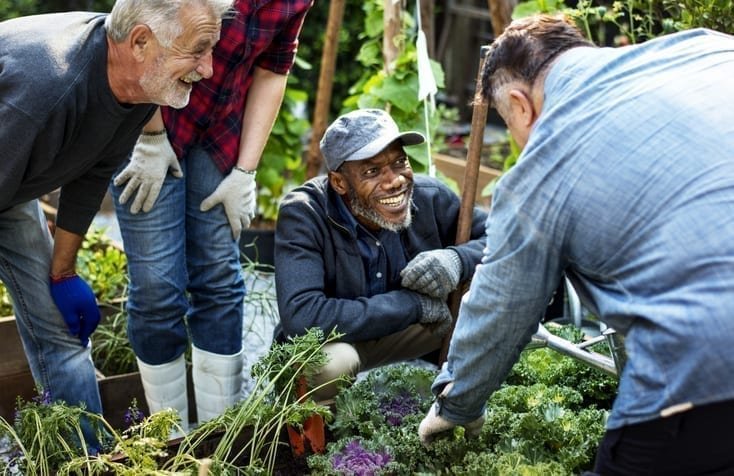Mental health
It became clear that this wonderful use of land can both preserve our landscape and educate people about the rural lifestyle and food production. But, its core purpose remains providing an effective preventive measure and treatment for the poor mental (and physical) health that is burgeoning in our urbanising population.
This is the future, and green care should have a much higher profile as a valid idea – I have never heard it mentioned anywhere in the health services, but it should be integrated into the minds of health professionals at an early stage in their education.
For their part, the green care groups have been collaborating hard to promote their services as well as deliver a standardised definition of green therapy and its practices, including quality assurance.
Encouragingly, Cambridge’s Psychological Wellbeing Services, which offer talking therapies on the NHS, has started incorporating into their website information on Darwin Nurseries – a local farm shop with land and animals to look after, and produce grown with the help of people with mental health problems or learning disabilities on placements.
Changing attitudes
I hope we’re nearing the day when we might see posters in GP surgeries advertising green care as a therapy option. The movement is following psychotherapy’s path – a steadily increasing understanding, leading to action from the government and medics to support non-physical aspects of our human experience and health.
We rely on our natural environment for comfort and stimulation because we came from such natural surroundings. Indeed, we can no longer afford to ignore the importance of the relationship between our minds and the natural world.
Our ‘undeveloped’ lands can also help manage physical health problems, prevent further social degradation and promote positive lifestyles. Making the most of these opportunities would require a change of attitudes in people who look upon our countryside as building plots and commercial opportunities, and in the general public, who could learn to value and appreciate the countryside for what it is, what it does and what it could provide.
In the long term, it makes sense for human health to retain our natural resources, and ensure a healthily functional environment provides a lasting respite from our urbanising society. Our planners, NHS and government must be able to look at the countryside and recognise its immense, largely untapped, potential for health and social care services. If we care for our countryside, it can certainly care for us.
Click here for more about the UN’s approach to environmental health.
 Play Video about This Rock Might Just Save The World
Play Video about This Rock Might Just Save The World Play Video about Play 2 hours of rock
Play Video about Play 2 hours of rock Play Video about Play 2 hours of brook
Play Video about Play 2 hours of brook Play Video about Play 2 hours of sheep
Play Video about Play 2 hours of sheep









































